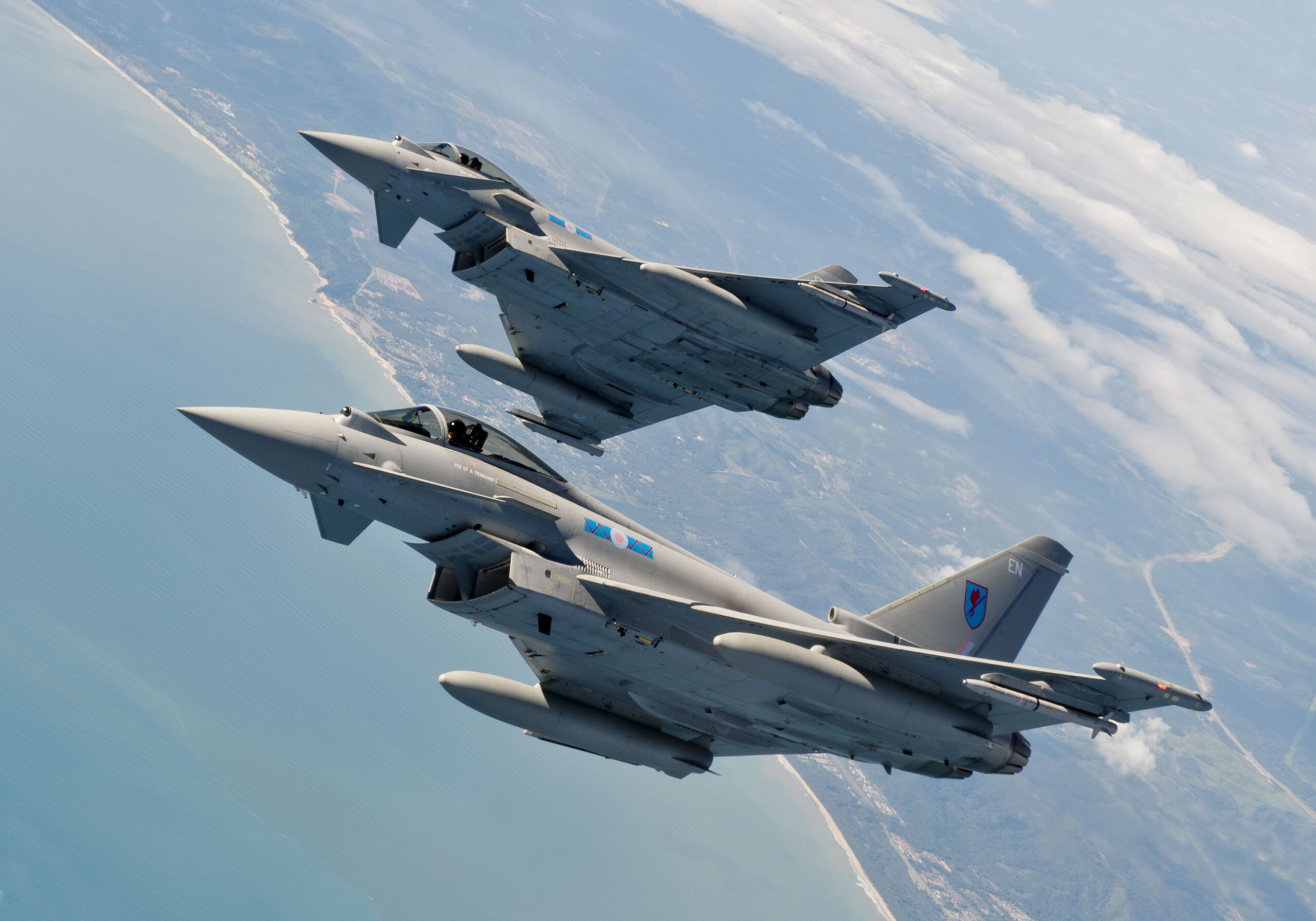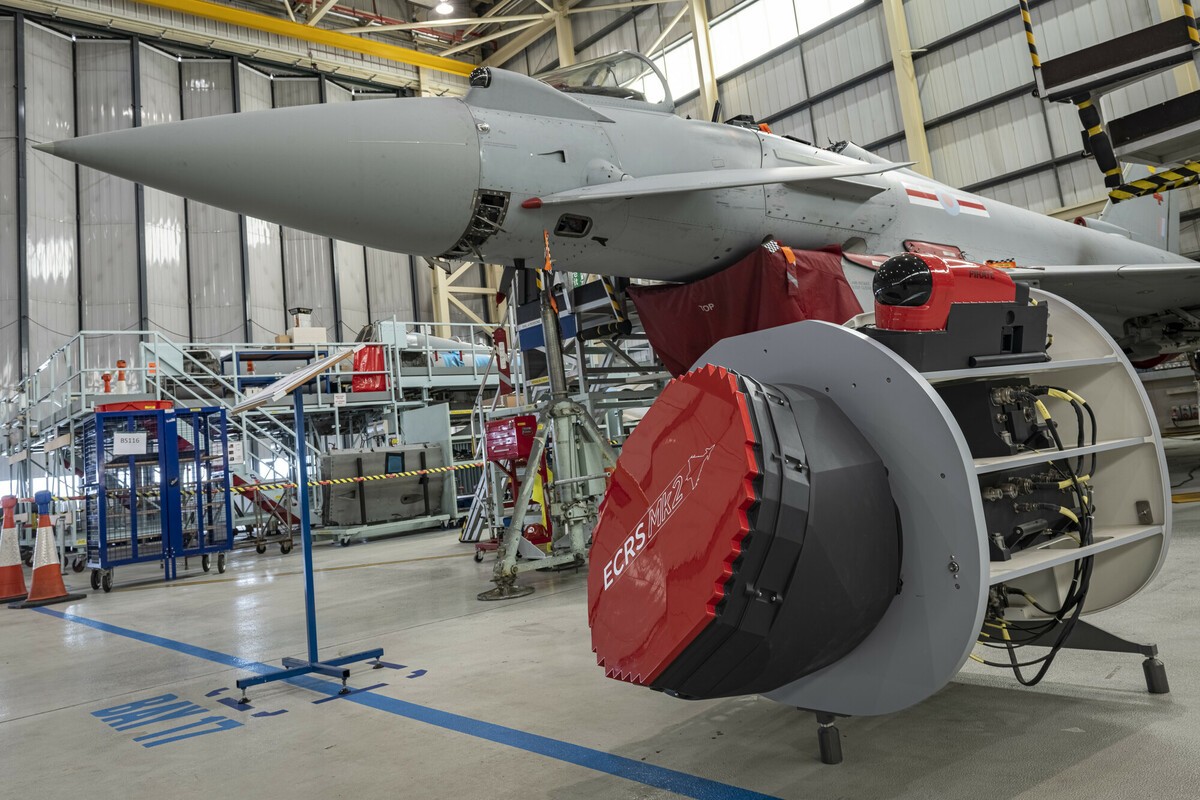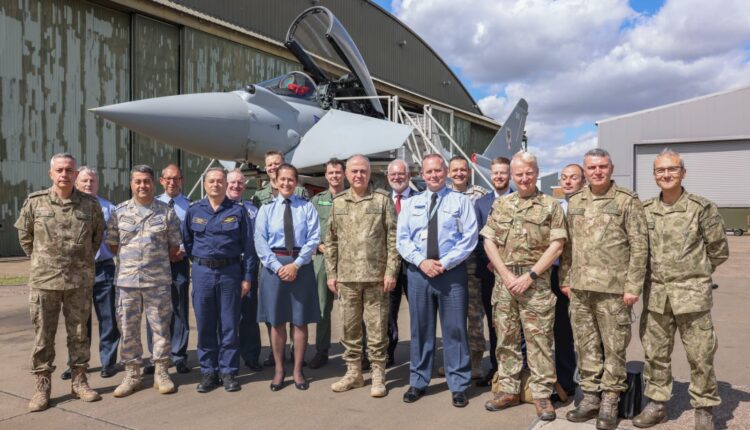Despite German Opposition, Turkey Continues Pursuit of Eurofighter Typhoon Fighter Jets
Recently, Turkish Armed Forces Chief of General Staff General Metin Gurak visited the United Kingdom, where he toured RAF Coningsby, a Royal Air Force base that houses Eurofighter Typhoon jets.
(DEFENCE SECURITY ASIA) — Despite opposition from Germany, Turkey continues its efforts and negotiations to acquire the Eurofighter Typhoon fighter jets developed by a consortium of four European countries: the United Kingdom, Italy, Spain, and Germany.
Recently, Turkish Armed Forces Chief of General Staff General Metin Gurak visited the United Kingdom, where he toured RAF Coningsby, a Royal Air Force base that houses Eurofighter Typhoon jets.
During his visit, General Gurak had the opportunity to closely inspect the fighter jets that Turkey has been attempting to acquire for several years, despite Germany’s objections.
It is understood that Turkey’s pursuit of the Eurofighter Typhoon has strong backing from the governments of the United Kingdom, Italy, and Spain.
Although the United States recently approved Turkey’s purchase of 40 F-16 Block 70 fighter jets and 80 modernization kits worth $23 billion (RM103 billion), Turkey remains keen on the Eurofighter Typhoon.

Turkey is seeking to acquire approximately 40 of the latest variant of the Eurofighter Typhoon to bolster its Air Force, which currently relies on F-16 fighter jets and, in the coming years, the fifth-generation “KAAN” fighter jets currently under development.
At the end of July, Eurofighter’s CEO confirmed Turkey’s strong interest in acquiring the Eurofighter Typhoon but revealed that the effort was blocked by Germany.
Giancarlo Mezzanatto confirmed that Turkey is aiming to purchase between 40 to 50 Eurofighter Typhoons, likely the latest variant, but Germany’s opposition has stalled the process.
The Italian-born CEO suggested that Germany’s reluctance to approve Turkey’s acquisition of the fighter jets could be due to dissatisfaction with Ankara’s natural gas exploration activities in the Eastern Mediterranean.
Turkey’s drilling activities in these waters have heightened tensions with its neighbors, particularly Greece and Cyprus, and their allies.
Germany is also reportedly unwilling to approve the sale of Eurofighter Typhoons to Turkey due to Ankara’s sharp criticism of Israel’s military actions in Gaza, which have resulted in 40,000 deaths to date.

Mezzanatto’s statement came after Turkish President Recep Tayyip Erdoğan urged German Chancellor Olaf Scholz to drop his opposition to the sale of the Eurofighter Typhoons to Ankara.
The Eurofighter Typhoon is developed by a consortium of four European countries: Britain, Germany, Spain, and Italy, and any sale of the fighter jet requires the approval of all four nations.
In November last year, Turkey announced that it had initiated discussions with the Eurofighter Typhoon consortium countries, particularly the United Kingdom, to acquire 40 of the latest variants of the fighter jet, known as “Tranche 4.”
Germany’s decision to block Turkey’s request to purchase the Eurofighter Typhoon has also drawn criticism from industry stakeholders in the country, particularly defense companies and labor unions.

German labor unions are urging the government to approve Turkey’s application to buy 40 Eurofighter Typhoons, warning that a refusal could result in the loss of thousands of jobs in the European defense industry.
Equipped with the AESA “CAPTOR E” radar, the Eurofighter Typhoon Tranche 4 is regarded as the most advanced European fighter jet, capable of serving until 2060.
Germany has reportedly ordered 38 Typhoon Tranche 4 jets. — DSA


